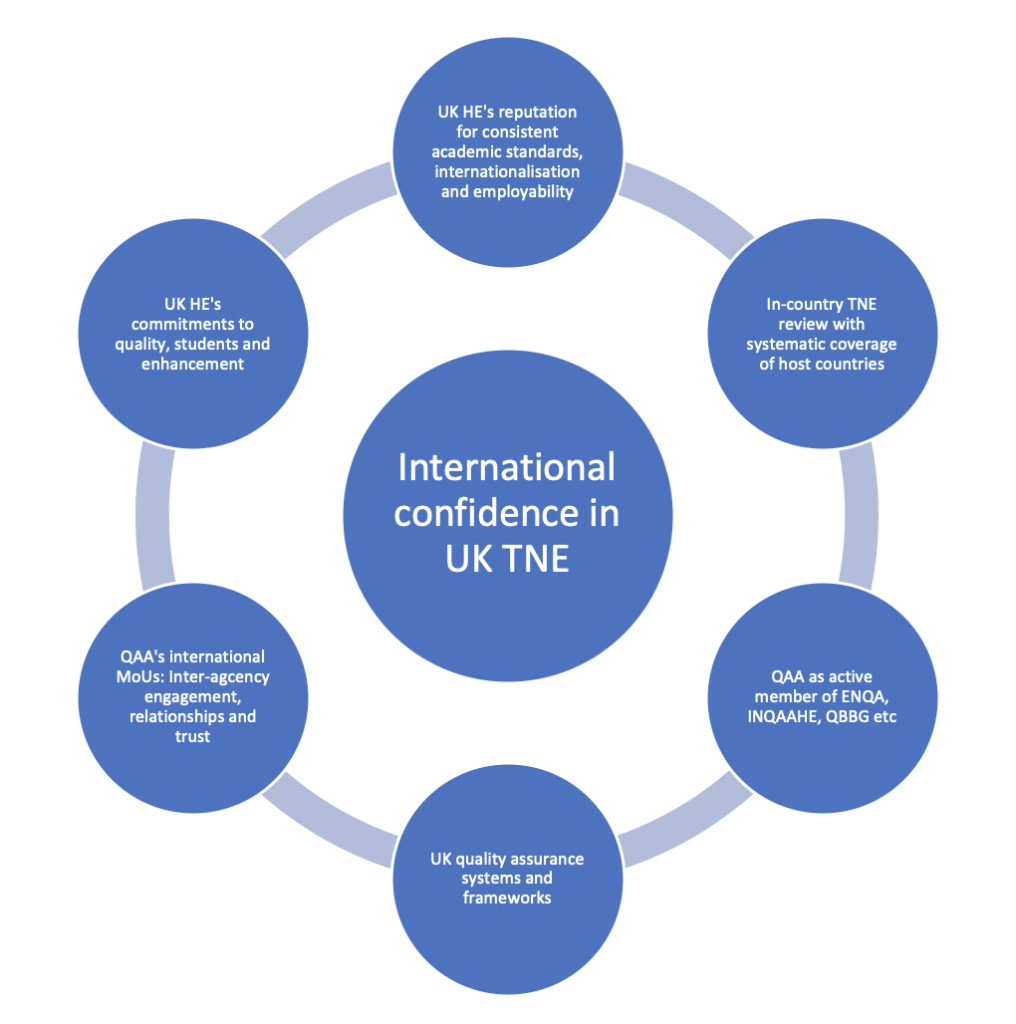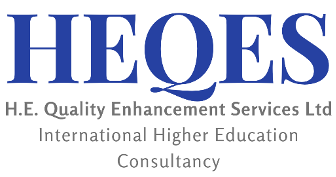Crucially important for the UK Higher Education sector is the confidence our international partners, their governments, regulators and quality agencies have in how we ensure the quality and standards of our TNE provision. Confidence is built on established reputation, direct experiences and good understanding. Reputations and confidence are maintained through continuing high-quality delivery and working in partnership, developing mutual understanding and gaining mutual trust. The basis of trust and understanding has moved towards more equal and balanced partnerships – progress on a journey towards more fundamental changes in assumptions.

There are many drivers of change, this short article aims to explore aspects of one – how shifts in power and more widespread commitments to inequalities (such as those underpinning the UN’s Sustainable Development Goals) are helping to produce a positive questioning of dominant assumptions and more welcoming of the potential to explore a range of perspectives. There is, of course, also resistance and perplexity. I want to explore some of the positives, not least the mutual benefits, and some of the implications for approaches to quality.
I’d argue fundamental, conceptual changes in attitude to the nature of the curriculum within the UK that we are starting to see is needed but, even more so, when it comes to delivering transnational education. Debates around de-colonising the curriculum are gathering force, there is wider discussion and action to address marginalisation and disadvantage, not only in access to education, but through its content and approach.
Excellent globalised, internationalised higher education involves engaging with a wide range of perspectives – many will assume that this is what they do. But, scratch beneath the surface and white, Western/Northern hemisphere constructs will often show how little the discourse has been changed and how gradual change has been. The paradigm is built on a Western model. A model offering an education in how to adapt to those who have held power; a tendency to assume that this is what is being sought by those entering higher education or developing higher education. This assumption has often been correct, if not necessarily right. It is no small challenge to change dominant assumptions, to develop knowledge and interpretations from other perspectives or to provide higher education that properly and fully reflects a diversity of perspectives.
This is a time when the UK, alongside other European ex-colonial nations, needs positively to show that transnational education has clearly moved beyond what was once often simply importing a Western model, involving paternalistic notions of helping a less developed nation or was largely a transaction offering a decent return for the UK provider.

The UK has a well-earned reputation for quality. It is important that quality is demonstrated, not merely asserted. Which is why mutual understanding and mutual trust need to form the backbone of quality in transnational education. The UK, through bodies such as the QAA, is working with other nations, in partnership, to develop that mutual trust. Mutuality is increasingly replacing some of the assumptions of the past. The UK does not have the right to assert its approach to quality assurance should satisfy others, be at an institutional or national level and is increasingly moving beyond those kinds of attitudes. UK providers commonly speak about TNE being about long-term commitments and aligned goals, reflecting the importance of mutuality. There are more dual and joint awards, more reciprocal mobility. Both providers and agencies look to learn from alternative practices. Two-way collaborative working enables the QAA, on behalf of the UK, to establish where there can be shared acceptance of judgements and outcomes from national processes, and where additional work may be needed, building mutual respect for different approaches and requirements.
It is worth asking: how much does the perspective change when it is centred on the needs and perspectives of the host country rather than the desires of a TNE provider? What happens when the gaze is returned?
Recognising the need to embody change, QAA has been commissioned to develop a new approach to the review of UK TNE centred on quality enhancement and built on the determination always to seek to ways to improve the quality of the student learning experience. The approach will complement and extend QAA’s international engagement, providing the context for discussions around quality assurance, helping to build trust and understanding. This should support ways in which the relationships that underlie transnational education are shifting, with the focus on student learning helping to meet rising student expectations. Quality enhancement is a change-enabler, responsive and focused on the how quality is used to deliver benefit in practice for students. Strong, open ways to demonstrate and improve the quality of the student learning experience are more important than ever. Their learning, our shared future.
It is hard to define an underarticulated perspective or set of needs, to create new theoretical constructs. The academy itself will help create the new discourses, as it has in the past, to ensure that higher education continues to help provide solutions to global challenges in meeting the needs of all. In creating a responsive, enhancement-led approach to TNE Review I am hoping quality review becomes an enabler of positive change.
Coming next:
Facing my first academic assessment in 35 years, some reflections on returning to non-assessed learning and, now, a first assessed micro credential.


Recent Comments